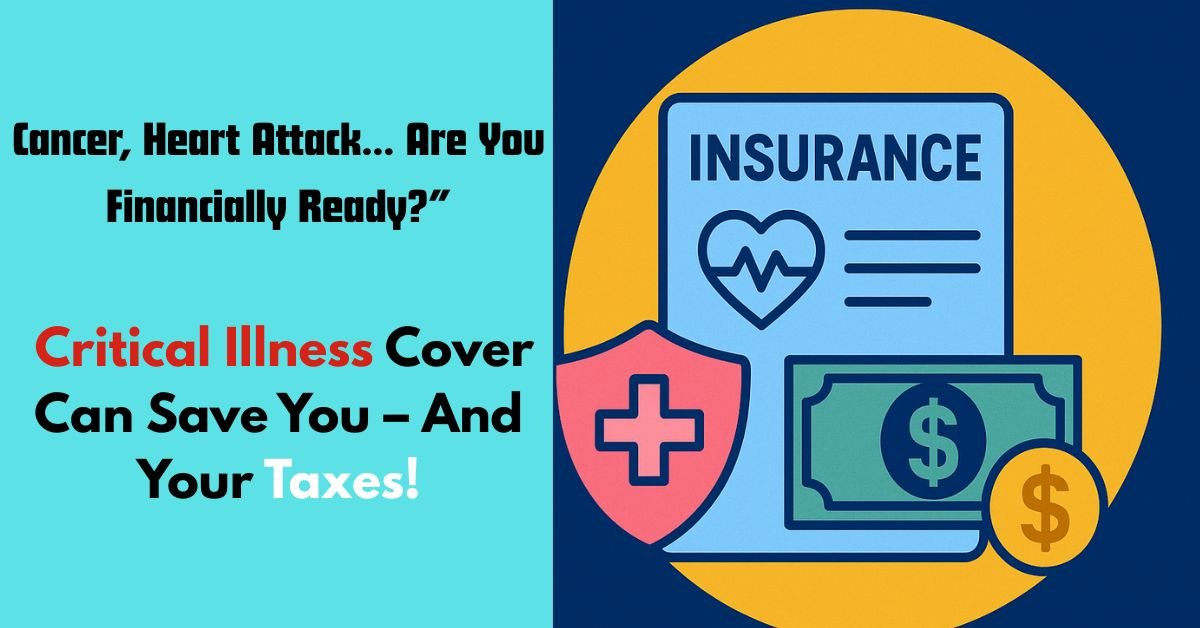critical illness insurance: Years of savings may be lost within weeks in case of a sudden medical emergency. Critical illness cover provides you with a financial lifeline, and when used to its best ability will allow you to encourage your tax bill as well.
We will discuss in this guide how a critical illness insurance works, who is supposed to take it and how one can come out with the tax benefit under Indian income tax law.
What Is Critical Illness Insurance?
Critical illness insurance is a form of health insurance which pays you a lump sum amount in case you are diagnosed with a serious illness as preset in the policy. Most common diseases are:
- Cancer
- Heart attack
- Stroke
- Kidney failure
- Major organ transplant
- Multiple sclerosis
- Paralysis
Differing with normal forms of health insurance, where claims are made against bills in hospitals, with critical illness insurance you receive a set payout in tax free money as soon as you are diagnosed. The money that you will receive this way can be spent on whatever you need, including medical care, lost wages, home care, and even to put debt in payment.
Who Should Consider It?
Critical illness insurance is especially useful for:
- Primary breadwinners who want to protect their family’s income
- Self-employed professionals with no employer-provided health benefits
- People with a family history of major illnesses
- Individuals over 40 planning for long-term health risks
Tax Benefits Under Section 80D
The Government of India renders tax deduction based on premiums paid on critical illness insurance under Section 80D of the Income Tax Act.
Here’s how much you can claim:
| Premium Paid For | Maximum Deduction Allowed |
|---|---|
| Self, spouse, and children | ₹25,000 |
| Parents (under 60) | ₹25,000 |
| Parents (60 and above) | ₹50,000 |
| Self (60 and above) | ₹50,000 |
Example:
When you are under 60 and pay 20000 rupees of your own critical illness policy and 40000 rupees of your elderly citizens parents then you are eligible to deduction of 60000 rupees.
Is the Payout Taxable?
No. The amount that is paid out as a benefit in case of a critical illness type insurance is also not taxable under Section 10(10D) as long as this premium is not more than 10 percent of the sum assured.

This makes it a tax efficient and a risk cover as well.
What to Watch Out For
Before you buy, keep these points in mind:
- Survival period: Some policies require you to survive 30 days post-diagnosis to be eligible for payout.
- Policy exclusions: Pre-existing conditions may not be covered in the first few years.
- Waiting period: Initial waiting period is typically 60–90 days from the start date of the policy.
- Coverage scope: Cheaper policies may cover only a limited set of illnesses.
Critical illness insurance is not a luxury—it’s a necessity in today’s unpredictable world. If chosen smartly, it can provide dual benefits: financial protection during a health crisis and significant tax savings.
Final Word
All you need to is read the small print and select the policy which suits your age, health status, and financial ambitions.
Braj Verma is a resident of Rajgarh in Madhya Pradesh and is a content writer and freelancer by profession. He has a degree in Political Science from Barkatullah University, Bhopal. He has expertise in subjects like credit cards, banking, loan, insurance, political analysis and digital marketing.

